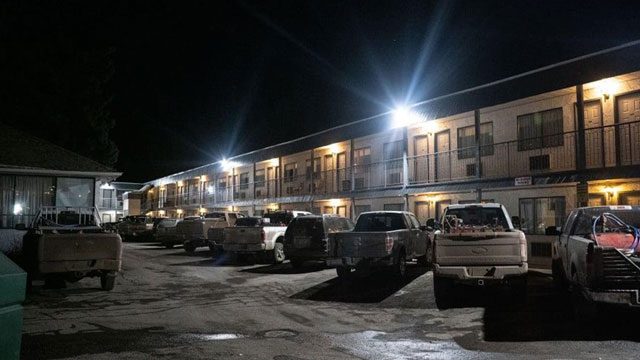

Mega-projects across the country say they’re scaling back work to reduce COVID-19 risk to their own employees and protect residents of nearby communities.
But outside workers still on the job have a potential to spread the potentially deadly virus, said Freda Huson, spokesperson and founder of the Unist’ot’en healing centre in the path of the Coastal GasLink pipeline south of Houston, B.C.
“Our local people work with these imported workers and go home to their families,” Huson told APTN News.
“The out of town workers still are housed in Houston Motor Inn and Pleasant Valley motel. The restaurants there feed these people. So communities are being put at risk.”
The Unist’ot’en healing centre is part of a protest movement to stop construction of the $6.6-billion natural gas pipeline in Wet’suwet’en traditional territory in northern B.C.
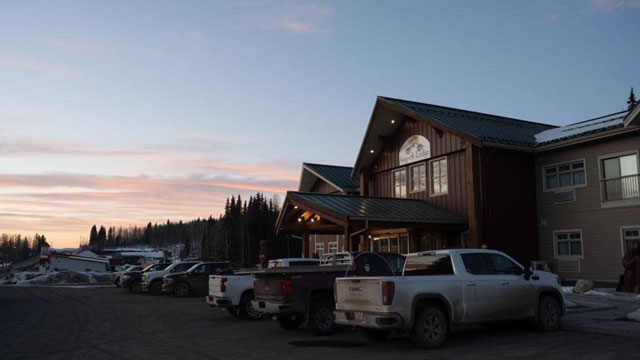
(More work trucks outside a hotel/restaurant in northern B.C. Unist’ot’en photo)
On its social media channels it’s pointing out what it believes to be a double standard – its in-person ratification meetings on a new title agreement are postponed during the pandemic but pipeline work continues.
“B.C. has shut down large gatherings and declared a state of emergency, but Coastal Gaslink keeps bringing in large numbers of workers onto our territory. Our Wet’suwet’en homesites and healing center are on lock down. Our clan meetings, to discuss our rights and title with our communities, have all been postponed,” it said on Facebook.
“Meanwhile, we face a steady stream of transient workers and RCMP who put our people and communities – and especially our elders – at risk. Our elders are keepers of cultural knowledge and language.”
The Unist’ot’en campaign repeats what many health experts have said about the medical vulnerability of northern and isolated peoples.
“Indigenous communities are already at increased risk from this pandemic, due to a lack of adequate health care and housing infrastructure,” it continued.
“CGL and RCMP’s actions are compromising our health and safety. They are carrying on with business as usual, acting as though they are above the law and above common decency.”
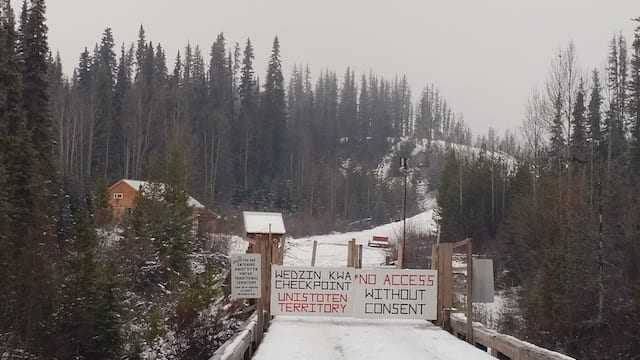
(A homemade barricade blocks access to Unist’ot’en healing centre. APTN file)
Health officials confirm the pipeline and other heavy construction sites across Canada are exempt from small-gathering rules imposed on the rest of society since the novel coronavirus pandemic hit Canada earlier this month.
That’s because the industry has said its workers can practice social distancing – staying two metres away to prevent passing on the virus via coughing or sneezing – on the job.
So work continues at CGL and the Site C dam in B.C., the Keeyask project and Vale nickel mine in Manitoba, the Ring of Fire chromite development in northern Ontario, and several mining operations in Nunavut, to name a few.
Even road and real estate construction is going on across Canada for the same reason.
But it’s not ‘business as usual,’ said Suzanne Wilton of CGL, noting the workforce has been significantly reduced and no one has tested positive for the infections virus at a CGL work camp.
Wilton said COVID-19 is top of mind and would be taken into consideration before construction resumed to “ensure the safety and health of our workforce, our local Indigenous partners, and local communities.
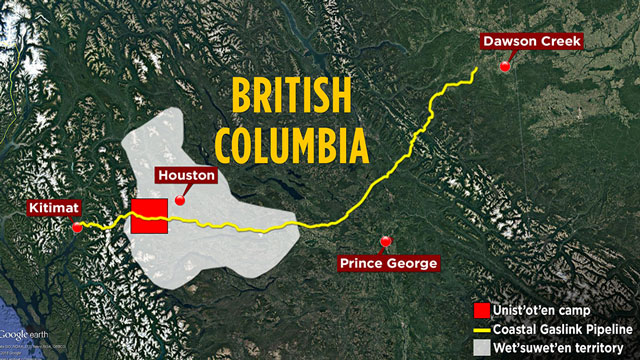
(A map showing part of the 670-km CGL pipeline route in northern B.C. APTN)
“We are not aware of any presumptive or confirmed cases among the Coastal GasLink workforce, which is already significantly reduced today as a result of spring breakup and previously planned ramp down of activities,” she told APTN News.
Staffing was downsized to 400 from 1,200 in February, Wilton added, noting employees still on the job are “residents and local contractors” who “perform critical activities, including environmental monitoring, pipe delivery and stockpile.
“Local contractors will undertake some off right-of-way site preparation and maintenance as the spring thaw does not impact it.”
Huson alleged two of those local contractors – Kyah Resources and Domcor Security – were employing outside workers that had the potential to spread the virus.
She supplied photos of their company trucks she said were parked outside Houston motels.
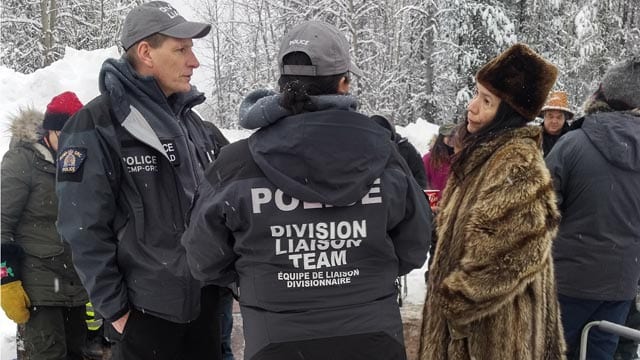
(RCMP officers near the Unist’ot’en healing centre. APTN file)
Troy Young of Kyah, a company owned by Witset First Nation, one of six first nations in Wet’suwet’en territory, said he had a small crew on the job right now.
“Our workforce is comprised largely of people from Witset and Smithers, other Wet’suwet’en community members, Gitxsan members, Tahltan and we have minimal crews at work right now as our winter construction is mostly finished,” he said in an email.
“We take the health and well-being of our people very seriously and are taking all measures necessary to keep our people and communities safe.”
Domcor didn’t return a request for comment by the time this story was published.
At Site C, B.C. Hydro said 12 workers had come down with flu-like symptoms.
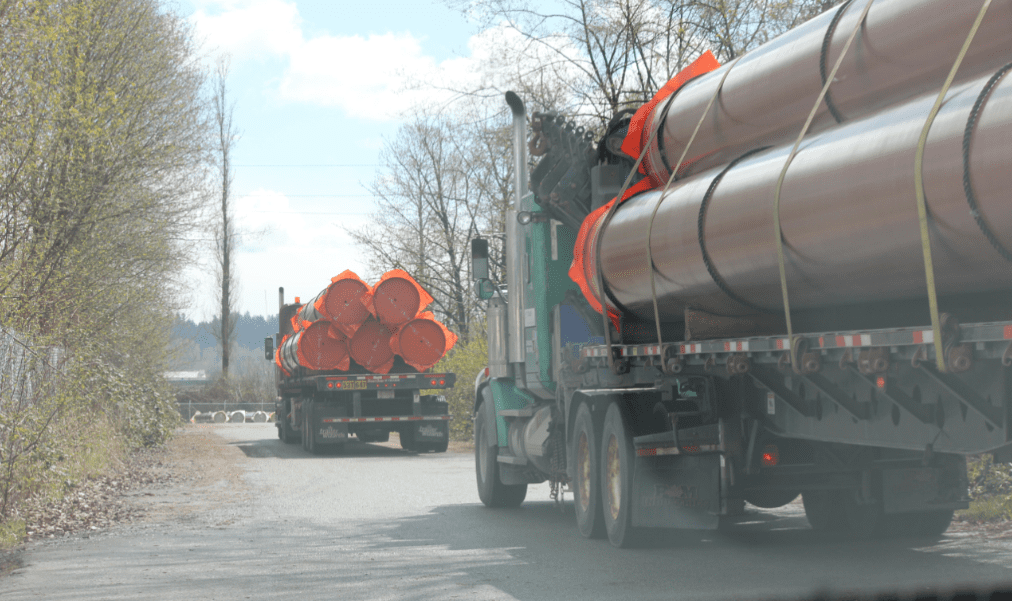
This has nearby Fort St. John city councillors, First Nation chiefs and local community members calling for an immediate halt to work there.
At the Keeyask site, Manitoba Hydro said about 700 workers “volunteered” to remain at the major hydro-electric project in the province’s far north.
Spokesperson Bruce Owen said tight entry and exit controls were put in place.
“…Any individual returning to site must be screened — following the guidelines established by Manitoba Health, Seniors, and Active Living — prior to being allowed back onto site,” he said in an email.
“If workers need to leave site during the suspension for family emergencies or any other exceptional reason, their situation will be subject to review on a case-by-case basis.”
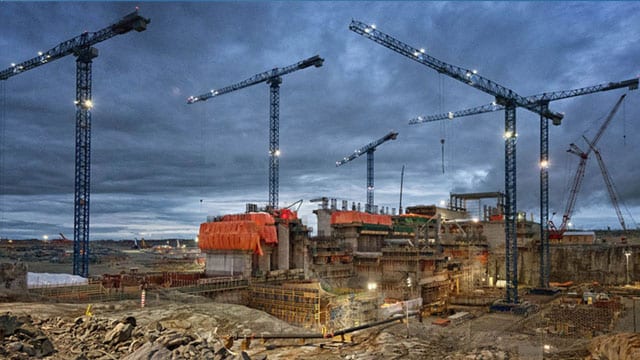
Owen said all travel was suspended except for “key employees” who would also be subject to health screening.
“Anyone arriving at site without prior authorization is being turned away at the gate and not permitted to enter,” he said, adding intramural activities, the gym, on-site theatre and dining room seating were closed.
“In addition to our manned gate stations, we have implemented strict control measures on delivery vehicles that are designed to minimize contact between drivers and on-site staff. For example, we are preventing drivers from leaving their vehicles, and on-site staff will load and unload the delivery vehicles instead. For smaller items like mail and other envelopes, pre-arrangements are made to leave items at the gate station, where on-site staff can then retrieve the items and return them to camp, again eliminating person-to-person contact.”
Owen said there were no confirmed or presumptive cases of COVID-19 at the site.
Still area MP Nicki Ashton said First Nations leaders whose communities surround Keeyask remain concerned.

(Unist’ot’en healing centre in northern B.C. APTN file)
“First Nations and Northern leaders, people across our region are reaching out to me expressing their deep concerns about the continued operations of the Keeyask construction site at a time when we are dealing with the worldwide COVID-19 virus pandemic,” Ashton said in a letter to Manitoba Hydro, a copy of which was obtained by APTN.
“The Keeyask site poses a special risk given that it is a work site for hundreds of people from Northern Manitoba, across Canada and even the US – in an enclosed living camp in one of the regions most vulnerable to the virus in the country. These multiple factors and the serious risks they pose must continue to be taken seriously.”
READ MORE: We’ve put all of our Wet’suwet’en Conflict content in one place.
Ashton (NDP-Churchill-Keewatinook Aski) did not respond to requests for an interview.
Back in B.C., Huson said people at her camp and in Houston were also at risk of being exposed to the virus from RCMP officers rotating in to patrol the contested pipeline route as part of the Community Industry Response Group (CIRG).
“The CIRG have never been local,” Huson explained in an email.
“The whole year they indicated themselves they are from lower mainland. Our local forces are not taken away from their detachments. We recognize local RCMP. And the ones escorting CGL are not local RCMP.”
Wilton was unaware of the recent need for RCMP escorts.
“…We continue to safely access the contested area and I am not aware of any police escorts being required. I would suggest you contact the RCMP regarding their activities,” she said in an email.
A spokesperson for the RCMP confirmed officers continue to patrol the area from their base in Houston but weren’t escorting CGL employees.
“CGL has their own resources to provide security for their workers and infrastructure and it would be best to contact them directly on their efforts,” said Cpl. Madonna Saunderson.




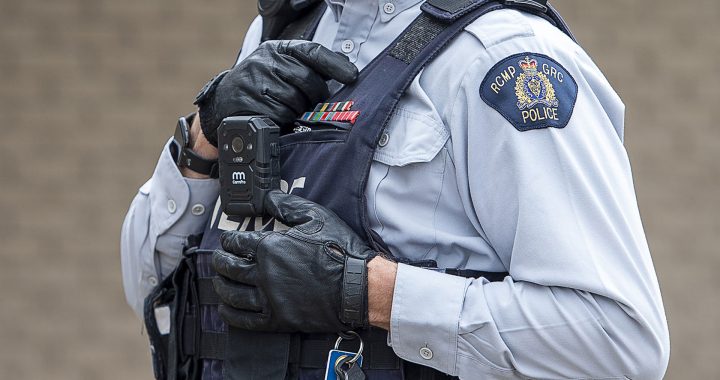
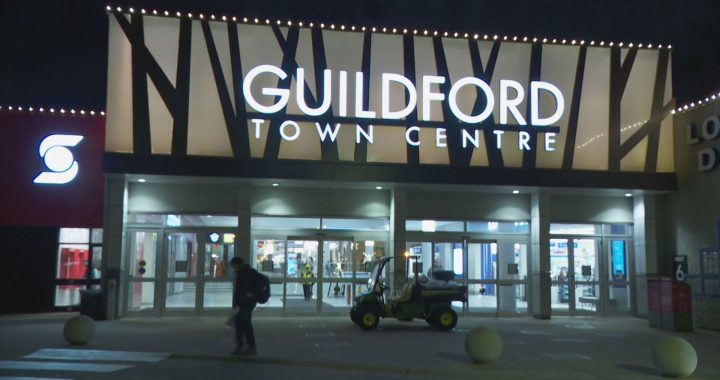
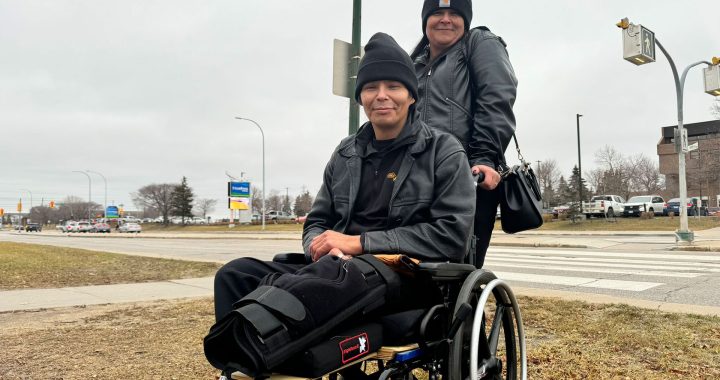
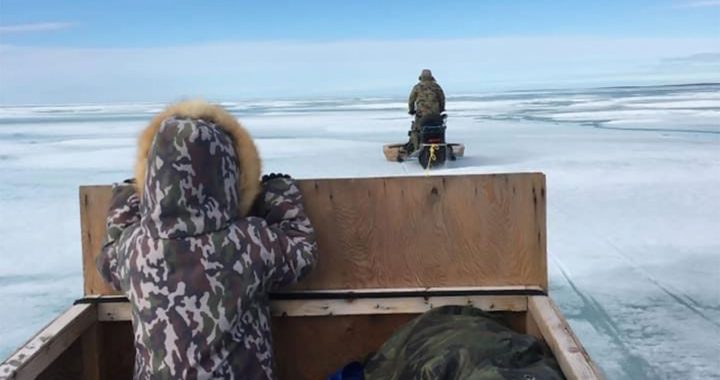

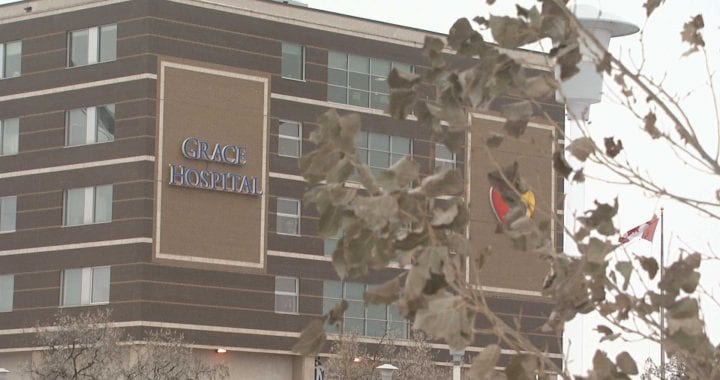
Suzanne Wilton of CGL said “no one has tested positive for the infections virus at a CGL work camp.” I’m sure that’s true. But, have they tested anyone?
Another form of genocide- not small-pox, but the FEAR OF WHAT COVID-19 WILL DO TO OUR NATIONS. Between killing the land and infecting the people, what you do to others ultimately you do to yourselves.
Funny that at the shanty town they’re building at Parrot Lakes, they continue to bring in paid professional activists from all around Canada. Talk about hypocrisy.
workers fly out and then back in potentially carrying the virus with them. how many are in the planes and are they social distancing? ha ha ha. this is a prime example of putting money before people.
To the Wetsuweten and Unistoten peoples…exercise your rights to call a State of Emergency and block off those roads until the Government lifts all precautions with regard to this pandemic.